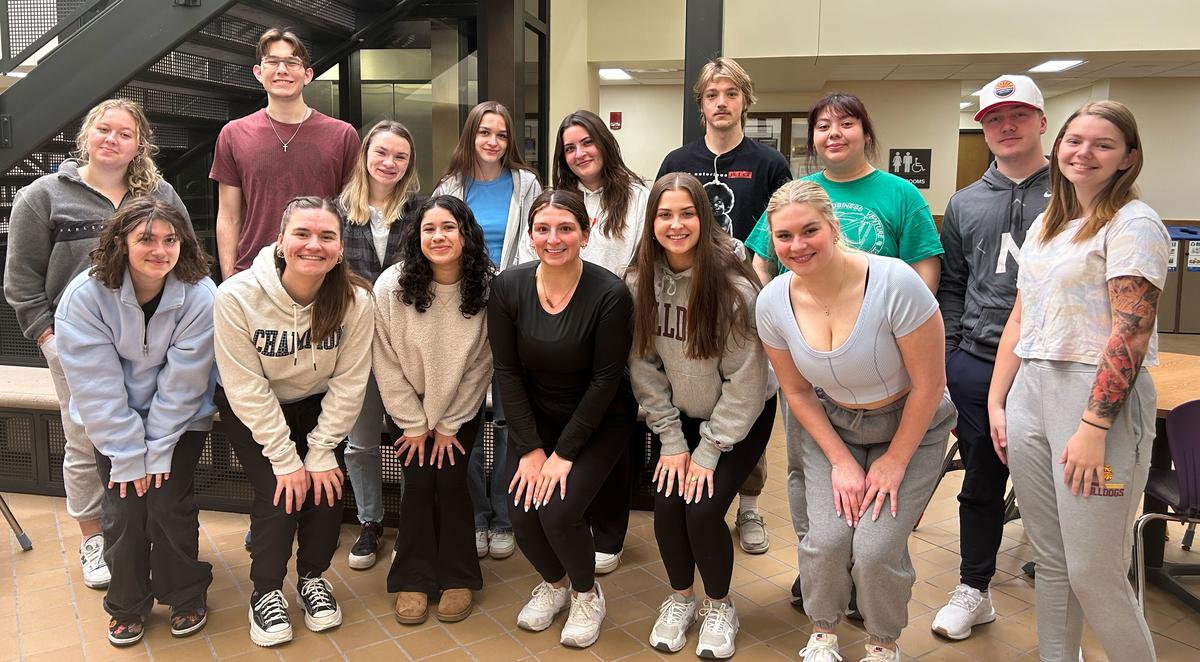In spring 2023, the Department of Communication launched a new, required core course, COMM 1020: Communicating Difference: An Introduction to Race, Power, and Identity in Communication. The new requirement was designed to ensure students graduate with basic skills for effectively communicating across differences, particularly when those differences are identities socially constructed and / or affected by a deep history of oppression or marginalization.
Contrary to what some might expect, students seem eager to learn this material. Dr. Ryan Goei (Communication) emphasized, “They want the tools to communicate effectively about difference and with diverse others. We thought students might resent it given the toxic political dialogue around these issues, but the vast majority of students are grateful for it, even if it is just because they want to help so they don’t harm themselves or others with mindless communications.”
Instructor Jean Farrell (Communication) built on those remarks, stating: “Indeed, students appreciate gaining knowledge and skills to navigate what are often troubled waters. Before class one day, a student asked if we were going to talk about Israel / Palestine and Hamas. I felt we should, but I was also rather hesitant to do so with the headlines regarding teachers getting into trouble for such discussions. On the way to class, it dawned on me: ‘don’t talk … LISTEN.’ So, I explained to the class the request that had been made, my expectation that all would remain respectful to each other, that they’d do some quick research on the topics, and discussion would follow. Our TA and I went around to the tables, asking questions, like what sources were they using for information. After about forty minutes, we listened to summaries from each table. A common theme was that it was empowering to talk safely about something so controversial.”
One recent student, June Weber (Communication ’26), reflected, “I had to put myself in the shoes of people who are different from me, and that really helped me grow as both a student and a person. After taking this class, I feel my empathy and communication skills have grown exponentially.”
Still, teaching these topics can be difficult. Goei explained, “I have had to reach deep into multiple modes of engagement to encourage them to fully engage with these complicated issues and rehearse their own voice. The gap between reading and learning about these issues and actually developing fluency in talking about them is large. So, I incorporate a diverse set of engagement / testing modes to encourage students to develop their voice on these matters.”
In one project, students do an “outreach” with a group they’d like to know more about. For instance, many students said they had been “clueless” on common issues of aging. So, some did their “outreach” with an elder in their family where they learned about and bridged a large and unnecessary generational gap. Farrell noted “there were many powerful stories shared about the student’s experiences during the assignment; the opportunity in this class for peer teaching and influence is simply wonderful.”
Students are not the only ones benefiting from the course. Goei reflected, “This class has helped me a lot. Before this class, I had spent a lot of time thinking about race and racism, but in this class, I have learned a lot about the other vectors of difference (age, religion, ability, etc.), their histories, and the way communication constructs and deconstructs these identities. We try to lead this class with humility, treating it as a learning experience for the students and ourselves.” All the COMM 1020 instructors meet three times per semester in a Community of Practice (CoP) to talk about the class and to shape new assignments. Another important function of the CoP is to support one another while teaching material that can be weighty and complicated.
Faculty in the Department of Communication have been grappling with how to help students “healthfully and productively engage across differences for over 30 years. Much of that work was focused at the individual level, helping students think about their communication style, build relationships with diverse others, or become aware of their implicit or explicit biases, for example. These are very useful endeavors,” said Goei.
“Still, the work of the anti-racist subcommittee at the campus level and a couple of influential voices in our department (particularly that of former UMD professor Dr. Rebecca deSouza) kept calling for us to both teach using a more systemic approach and practice what we teach by making systemic changes in our department.
“We want to empower students with the knowledge necessary to engage meaningfully and positively in challenging conversations around gender, sexuality, ability, religion, race, and age. Effective communication requires a systemic lens that helps students see how these issues are individual, of course, but also how they have been historically constructed by socio-cultural, institutional, and structural forces. We want students to see how communication is central to these projects as it both constructs (and deconstructs) these differences.”
For students considering taking the class, Weber asserted, “Absolutely take it! It is a fantastic class that covers important issues in today's world, and it’s incredibly interesting. The class challenged my mind in ways that no other class has. It made me wonder what I can do to be a better peer and person in general. After taking this class, I think more about what I say before I say it, and though it may be seen as cliché, I learned to never judge a book by its cover.”
At this early stage, it seems there is much to be optimistic about for the new course, and the conversation is far from over.
